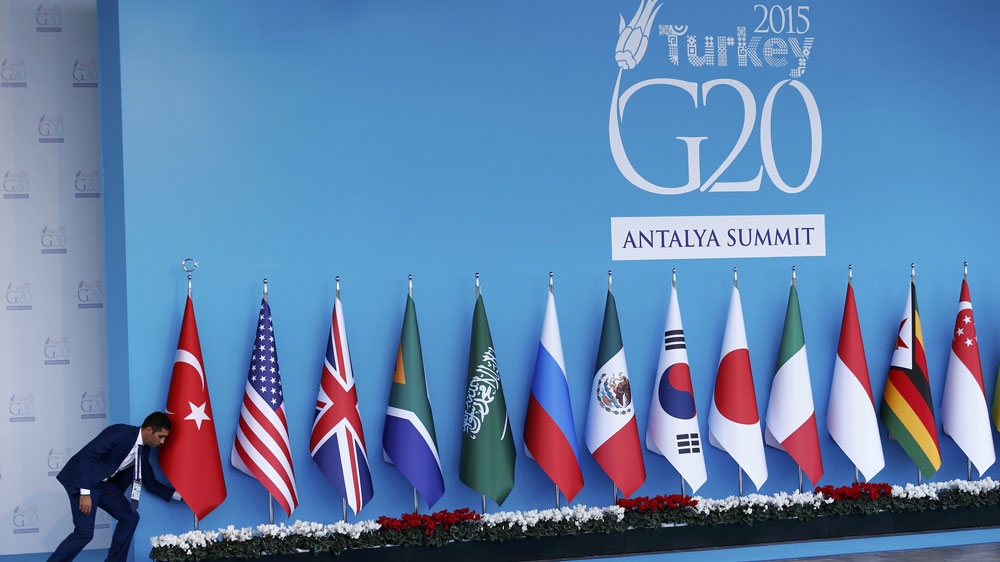China hopes to highlight its central position in shaping global governance rules and reinforce itself as a global power at the upcoming G20 Summit.
The G20 Summit will be held on September 4th and 5th in Hangzhou, China, and President Xi Jinping will chair it. The Summit will host the leaders of the G20 member states, guest countries and leaders of international organizations. It will be the first time China hosts the meeting in the eight-year history of the event. The theme of the Summit will be “Toward an Innovative, Invigorated, Interconnected and Inclusive World Economy”.
China is planning to present a vast strategy for global growth amid the lowest rate of global growth in about thirty-years and poor economic recovery. The country would like leaders of the G20 member states to resist protectionism and pursue economic growth through innovation. In doing so, China hopes to strengthen itself as a global power.
However, diplomats have said China suspects the West will overshadow its leadership on the international stage by disputes over territory and protectionism. Preventing Western G20 leaders from doing this will be an important indicator of how successful China will judge the Summit to be.
“From where China sits, it looks like the Americans are trying to encircle them,” a senior Western envoy said when recounting conversations with Chinese officials ahead of the event.
China has recently been facing legal disputes after an international court ruled its claims to the resource-rich South China Sea violated international law. The country continues to reclaim land and construct military facilities such as air strips on islands and reefs in the international waterway and President Xi will be under pressure at the Summit to avert challenges against his government’s actions on this issue.
“Let’s make cooperation ever higher,” the Chinese newspaper People’s Daily wrote in a commentary last week, making it clear that Beijing does not want disputes to overshadow the Summit which will be attended by leaders whom they have had clashes in foreign policy with such as U.S. President Barack Obama and Japanese Prime Minister Shinzo Abe.
Earlier in August, the Chinese state-run Study Times wrote that Western nations were purposely denying a rising China a strong voice on the international stage with schemes such as the Trans-Pacific Partnership (TPP), a multinational trade agreement that wants to to extend restrictive intellectual property (IP) laws.
“Trying to get back their right to global governance, they are forging a new ‘sacred alliance’, striving to establish new rules,” the paper wrote in a G20 commentary.
CLASHES WITH BRITAIN AND AUSTRALIA
China has been angered by the UK and Australia confronting them over strategic Chinese investments in their countries. China responded by accusing them of protectionism and paranoia.
Britain has delayed Hinkley Point, a Chinese-funded $24 billion nuclear project while Australia has blocked the $7.7 billion sale of the country’s largest energy grid to Chinese buyers.
Western leaders are also worried about access to their companies in China.
The President of the European Union Chamber of Commerce in China, Joerg Wuttke said European officials are becoming increasingly confident in voicing their dissatisfaction with China’s overcapacity issues and a lack of reciprocal market access for European companies.
“It has reached the point where people are not afraid to speak up any more. They feel like they have to be tougher in front of their own constituencies,” Wuttke told Reuters.
A European official involved in trade issues with China also voiced frustration over China’s position on protectionism.
“The Chinese would shut you down at once if you said you wanted to buy one of their grids. You wouldn’t get to the end of the sentence,” the official added.
This may lead to clashes or pose a hindrance to China’s success at the Summit.
Despite China being angered by many countries, a diplomat said that China still wants the Summit to go smoothly.
“It’s very important from the stance of national pride,” said the diplomat, pointing out it was not uncommon for G20s to be overshadows by arguments over non-economic related issues.
“It’s a minefield for China.”
ANXIETIES OVER JAPAN
Ties between China and Japan have long been overshadowed by territorial clashes over a group of uninhabited islands in the East China Sea.
Despite the long-held divisions, China’s top diplomat last week urged Japan to play a
“constructive” role at G20 amid fears that Japan is steering towards becoming involved in the South China Sea dispute at the insistence of its ally the U.S.A.
Wang Youming, the head of the developing countries program at the Foreign Ministry-backed China Institute of International Studies, wrote in the Chinese Global Times that the closer G20 member states forged their alliances, the more likely Japan would get involved in China’s claims to the sea.
“Japan is getting entangled in the South and East China Sea issues, cozying up to the Philippines, and urging China to respect the result of the so-called ‘arbitration’ case,” Wang wrote.
“Japan is up to its old tricks, and it’s hard not to think they are trying to mess things up.”
U.N. CHIEF PRAISES CHINA’S LEADERSHIP
U.N. Secretary-General Ban Ki-Moon praised the Chinese government for its focus on promoting sustainable development at the upcoming Summit. “I commend China for steering the G20 summit this year in such a successful way leading the G20 towards an action agenda that will come in full support of the 2030 Agenda for Sustainable Development and the Paris Agreement on Climate Change,” said Ki-Moon.
The 17-point sustainable development agenda was finalized last year by leaders who attended the Summit to celebrate the United Nation’s 70th anniversary.
